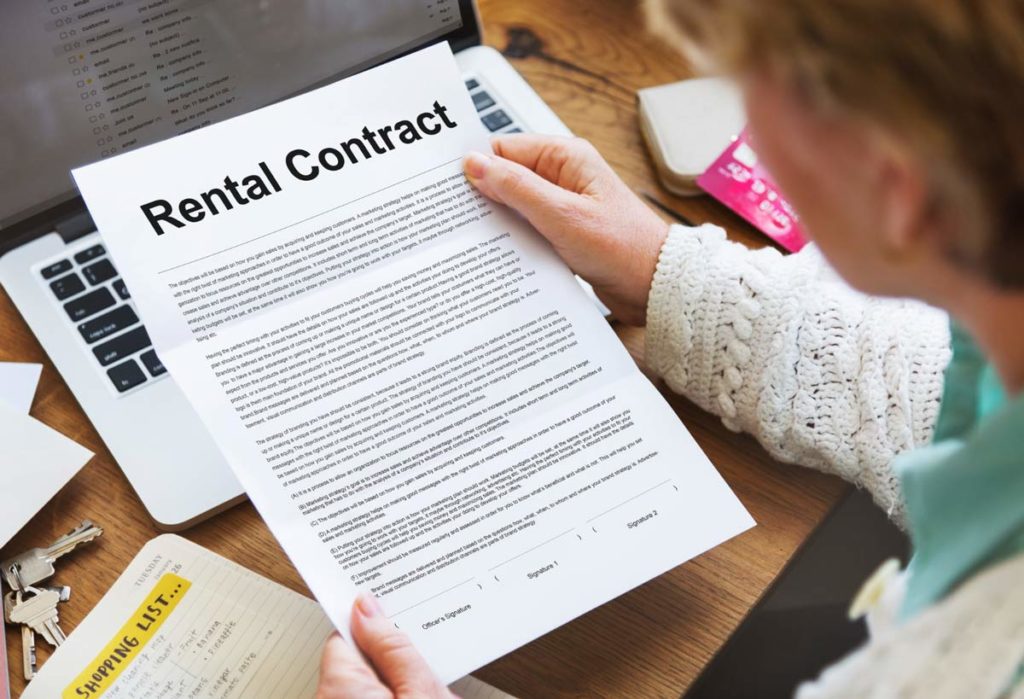The national average rent went up by a record-setting 17.6% last year. At the same time, housing vacancy rates plummeted, making open rental units hugely popular in almost every market.
For landlords, these trends mean money in the bank when inflation is also rising. For these, or for whatever other reasons you have, you’ve decided to invest in property and establish it as a rental unit. Far from being easy income, however, you know there are pitfalls to this business that create a lot of headaches. You may be worried about renting out a house for the first time. That’s understandable for any new business venture, but particularly for landlords, who can be vilified in the popular press as somehow being unscrupulous.
The truth is, renting to tenants is like any other business. Your job is to keep customers – your tenants – satisfied while making sure you don’t lose your shirt over a business decision. If you’re considering becoming a landlord, we have some steps to renting a house for the first time that you should follow to help make your business a success.
Steps to Renting a House for the First Time
Renting out a house for the first time is terrifying and exciting at the same time. You have high hopes the rent exchange will go smoothly and your mortgage will be covered – ideally with some profit for you. At the same time, you’re hoping you’ve selected the right tenant for the long haul. Hopefully, nothing will break in the meantime to run up your cash or credit numbers. It’s a nerve-racking process of hope and fear for your new venture, but these 10 steps will help you better prepare for renting your property for the first time.
1. Make sure you understand the housing laws in your area.
The legal ramifications for landlords require you to stay on top of national, state, and regional housing laws. There are as many restrictions on keeping your property habitable as well as things like non-discrimination requirements about who you select as your renters. Know the laws because they change frequently.
2. Make your property view worthy, with some curb appeal.
The best renters are looking for a good location for their families, but also a new home that appeals to them. Always repaint and clean before a showing. Even consider staging it so that the best tenants can envision their own furniture under your roof.
3. Take the time to thoroughly screen potential tenants.
If you’re renting out a house for the first time, it may be tempting to “go with your gut” when selecting a tenant. Using your instinct to select a renter adds risk to your new business. The wrong tenant can fail to pay rent or harm your property. It’s okay to interview a tenant like you would a job applicant. Pay to have their criminal and eviction history checked. Make sure they are employed or have a source of income. Be sure to contact their prior landlords for references.
Of course, this is contingent on local laws (see point #1). Some states or cities mandate “first come, first served” policies in which you must accept the first qualified renter.
4. Check the area for average rental prices and price your tenant fees at market value.
Truthfully, this was something to consider when you first purchased the property, if you did so intending to rent it out. However, before you set the rental price, check the market again to see what it will bear.
5. Take time to write a clear, comprehensive lease agreement.

The lease agreement is of primary importance when renting out a house for the first time. Finding the right tenant is step one, but you must also lock in the relationship by spelling out the contractual agreement with your new tenant. Both you and the tenant should review and sign the document, which spells out the terms of both your responsibility to the tenant and vice versa.
A good lease agreement covers the rental price and terms as well as who is responsible for maintenance of the home, any rules about smoking and pets, deposit requirements, and more. For your first property, it’s a good idea to have a lawyer take a peek at the lease to ensure it meets all of the legal obligations for your area. Too, a local attorney can help ensure that the document adequately protect you should the tenant relationship go south.
6. Set up an accounting system.
Failing to organize money in and out is one of the biggest mistakes we see new landlords make when renting out a house for the first time. As they grow their business and take on new properties, bookkeeping can become a real snarl. Instead, set up a process for tracking money in from rent, and money out for tax payments, investments in maintaining the property, and so on. These documents should be safely digitized and backed up in the cloud.
This system should include how you intend to collect rent. Solo landlords often have renters mail checks but that takes time and can affect your cash flow. Consider setting up digital payment systems for more immediate money in.
7. Make an inventory take and pictures of the rental property before the tenant moves in.
That’s very important for documenting the state of the home before the tenant moves in. Do a walkthrough with the tenant before you hand over the keys. Your goal is to document and confirm the state of the property before the tenant moves in. Then, if the property becomes damaged or something breaks, there is a baseline showing the move-in condition when your tenant arrived.
8. Set up a reserve fund for your property.
Rental properties of any type can experience unexpected maintenance issues. It’s a normal part of owning a home. Consider how you will replace the furnace if something goes wrong. What if you can’t fix a leaky pipe yourself? How old is the roof and will it need repairs? Routine maintenance on any building is critical to slowing down the natural process of decay on these structures. Set aside money to handle the unexpected and protect yourself.
9. Consider landlord insurance.
This is a policy to protect you from liability as well as property protection. These plans can cover losses from fire, but also if your tenant sues because they fell down a flight of stairs. There are clauses that cover vandalism but also burglary and more. Talk with your local insurance agent about your options.
10. Hire a property management company.

Renting out a house for the first time is hard. There’s a lot to deal with and mistakes can happen. That’s why many first-time landlords work with Tenant Planet to manage their new investment. Our fees are affordable and we can take away many of the hassles and risks associated with managing your new business. Contact us today to find out how we can help.





